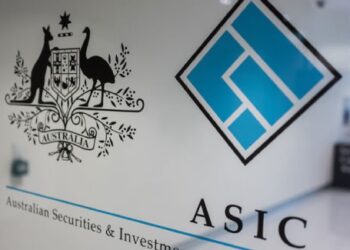Speaking to SMSF Adviser, DBA Lawyers director Daniel Butler said footnote 3 of the draft on tax ruling TR 2017/D2 states that: “Generally, where a company is established or maintained to make profit or gain for its shareholders, it is likely to carry on a business.”
The footnote also states that is so “even if the company only holds passive investments, and its activities consist of receiving rents or returns on its investments and distributing them to shareholders”.
Mr Butler said while it is unclear where this draft ruling will end up, with the Minister for Revenue and Financial Services Kelly O’Dwyer looking to exclude passive investment companies from the tax cuts for small businesses, it could have technical ramifications for SMSFs if it prevails.
This view has come from the tax division of the ATO, he said, rather than the superannuation division.
“So the ATO tax division could be out of kilter with the superannuation division, but the superannuation division generally maintains that you’ve got to be very careful before you run a business in an SMSF. If you run a business in an SMSF, they’ll make very sure that you comply with every regulatory test there is,” he explained.
“So they don’t say you can’t conduct a business but they are very careful where you do conduct a business. So this [interpretation] could open up the ATO’s concerns about more activities by super funds given superfunds hold many passive investments.”
This broader interpretation could also impact the ATO’s view on what is business real property, he said, as it also applies where companies hold passive investments and “its activities consist of receiving rent from a passive property”.
“If you put that to business real property, it might mean receiving passive rents could be business real property if this latest ATO view was to prevail,” he said.
It could also have implications for non-geared unit trusts, he warned.
“Some people may wish to do a development, and in the past if that development was not a sizeable development, you might argue it’s not a business, whereas if this broader ATO view prevails, it could be that more investments under a non-geared unit trust in property could be considered a business activity which could result in units owned by an SMSF in such a unit trust becoming in-house assets.”
“[This draft tax ruling] has ramifications not only for the lower company tax rate but in respect of when an SMSF might be conducting a business, what business real property is, and when a non-geared unit trust is conducting a business and therefore potentially in breach of SISR.”
It will be interesting to see the outcome of this draft ruling is finalised and what follows from Kelly O’Dwyer’s recent announcement, Mr Butler said.



One issue is with limited resource borrowing arrangements: here, an SMSF which borrows has to establish a separate holding or custodian trust to hold the asset during the period of borrowing. ATO has until now accepted this arrangement. Presumably it will continue to do so without the SMSF being considered to run a business. Would this custodian trust arrangement be a wider solution to “running a business”?